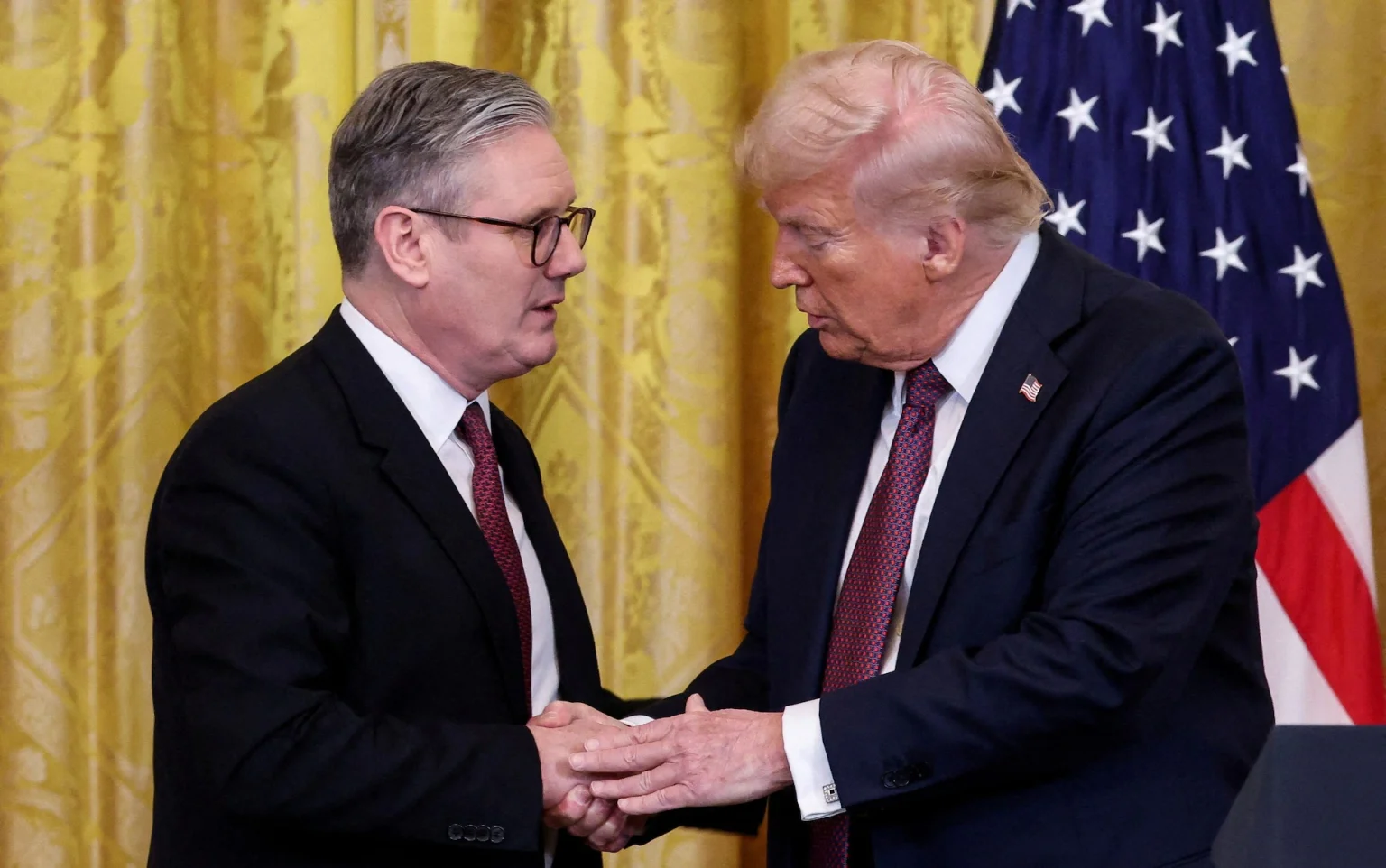U.S. President Donald Trump has wrapped up a highly controversial three-day state visit to the United Kingdom, leaving behind a swirl of diplomatic unease, domestic criticism, and political provocation. During a joint press conference at Chequers with Prime Minister Sir Keir Starmer, Trump urged Britain to adopt military tactics to curb illegal migration, criticised the UK’s recognition of Palestine, and revealed he personally requested that London Mayor Sadiq Khan be barred from the state banquet at Windsor Castle.
“Call in the Military” to Stop Migrants
Trump’s most explosive comment came during a live press briefing at Chequers on Thursday morning. Addressing reporters alongside Starmer, the U.S. President said:
“You have people coming in, and I told the Prime Minister I would stop it, and it doesn’t matter if you call out the military, it doesn’t matter what means you use.”
The remarks drew immediate criticism from human rights groups and opposition MPs, with many branding it an “irresponsible and dangerous endorsement” of hardline immigration tactics. However, Trump doubled down, insisting that border sovereignty was a “matter of national survival.”
Read Also:
Starmer unveils £150bn US investment as protests greet Trump’s State visit
Farage says Trump recognises him as UK’s next prime minister
Starmer orders fresh probe into MI5 Over false court evidence
Starmer, who looked visibly uncomfortable, did not explicitly rebuke the statement but reiterated his government’s “balanced and lawful” approach to immigration enforcement.
Trump Admits Blocking Sadiq Khan from Banquet
Speaking aboard Air Force One on his return flight to Washington, Trump revealed that he had intervened in guest arrangements for the Windsor Castle banquet, requesting that Mayor Sadiq Khan not be invited.
“I asked that he not be there,” Trump told reporters. “I think the Mayor of London, Khan, is among the worst mayors in the world – and we’ve got some bad ones.”
“He wanted to be there. As I understand it, I didn’t want it. I’ve not liked him for a long time. I just think, you know, I have a certain pride in London and the UK.”
The revelation, confirmed by senior sources, reignited Trump and Khan’s longstanding feud, with the Mayor’s office declining to comment directly but stating that “London remains proud of its openness, values, and leadership.”
Criticism Over UK Recognition of Palestine
The visit also highlighted geopolitical tensions. Trump publicly criticised the UK government’s recent decision to begin recognising Palestinian statehood—a move seen as part of Starmer’s new Middle East strategy.
“You know where I stand – I want the hostages released right now, not next week, now,” Trump said, before adding that moves perceived as undermining Israel were “unhelpful.”
Starmer defended the policy, saying the UK sought to be “a credible broker for lasting peace in the region” and that his administration was working “closely” with Washington to coordinate efforts.
Royal Pageantry, Diplomatic Deals – and Deep Divides
Trump’s visit, his second official state visit to the UK, was hosted by King Charles III and featured the full ceremonial treatment, carriage procession, military parade, and a royal banquet at Windsor Castle.
Beyond the pageantry, Trump and Starmer announced new U.S and UK tech investment deals worth an estimated £150 billion, targeting artificial intelligence, nuclear energy, and clean infrastructure. The agreements were touted as a major win for post-Brexit Britain and a fresh foundation for the “special relationship.”
Protests and Public Backlash
Yet outside the palace gates and Downing Street, public sentiment was deeply divided. Thousands marched through central London under banners reading “No to Racism, No to Trump,” and several protesters were arrested after images linking Trump to Jeffrey Epstein were projected onto Windsor Castle.



